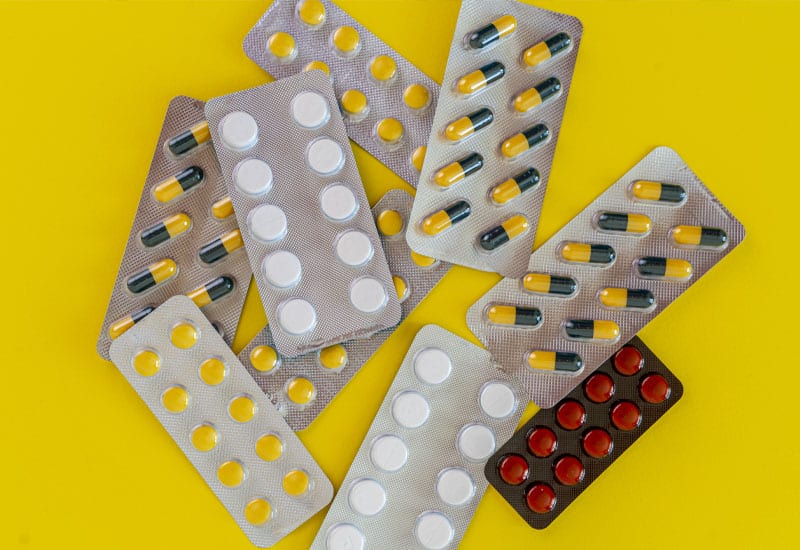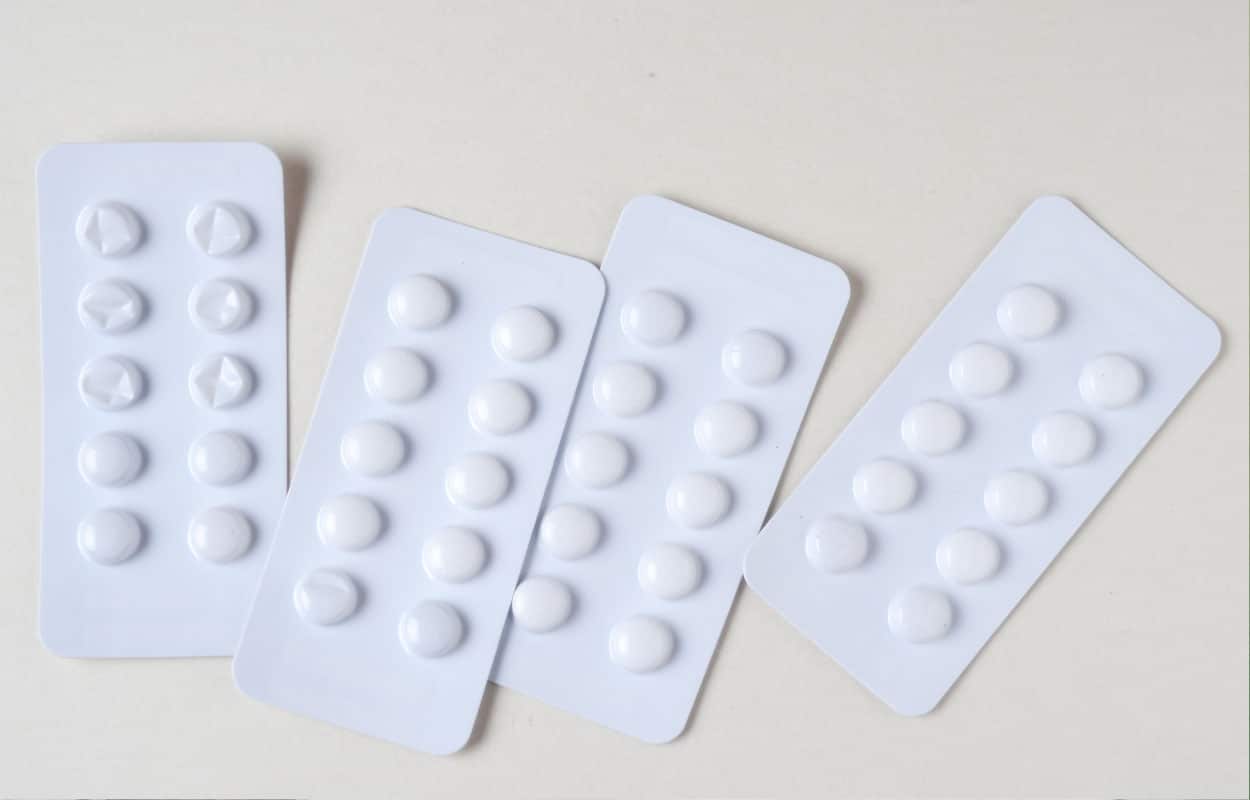Key Points
- Methylphenidate is a central nervous system stimulant commonly used to treat impulsivity and hyperactivity symptoms associated with attention-deficit hyperactivity disorder (ADHD).
- Methylphenidate is an FDA-approved treatment for narcolepsy, but is generally considered a less common choice compared to first-line agents such as modafinil or armodafinil.
- The most common brand name for methylphenidate is Ritalin.
- This prescription stimulant is available in both immediate-release and extended-release formulations.
- Depending on the type and dosage of methylphenidate you’re taking, the effects of the drug might last between 4 and 12 hours, though it can stay in your system for much longer.
- Common side effects of methylphenidate include mood swings, nervousness, headache, and dry mouth.
- Serious side effects of methylphenidate can occur and include seizures, hallucinations, confusion, and unusual excitability.
- Methylphenidate and its major metabolite ritalinic acid can be detected in urine for approximately 1–2 days if specifically tested for, and in hair for up to 90 days; however, most standard drug panels do not include methylphenidate without a targeted assay.
- Methylphenidate is a Schedule II controlled substance and carries the risk of abuse and dependence.
- Signs of methylphenidate addiction include intense cravings, risky use, and withdrawal symptoms when abstaining from the drug.
How Long Does Methylphenidate Last?
Methylphenidate, also known as Ritalin, comes in both immediate-release and extended-release formulations. The immediate release formula may last between 4 and 6 hours, while the extended release tablet is meant to last between 6 and 12 hours. Even after you stop feeling the effects of methylphenidate, though, you’ll still have traces of the drug in your system. Typical workplace standard urine immunoassays do not detect methylphenidate; confirmation requires a specific assay (e.g., LC–MS/MS) for methylphenidate or ritalinic acid, generally detectable for up to ~2 days.
What Is Methylphenidate?
Methylphenidate is a central nervous system stimulant, commonly known by its brand name Ritalin. This prescription stimulant is FDA-approved to treat attention-deficit hyperactivity disorder and sometimes narcolepsy.
This stimulant medication comes in both immediate-release and extended-release forms. Because it carries a risk of substance abuse and dependency, the U.S. Drug Enforcement Administration (DEA) has classified it as a Schedule II controlled substance. [1]

Common Side Effects of Methylphenidate
Methylphenidate can cause unwanted side effects in some people. Common side effects include: [2]
- Mood swings
- Increased blood pressure
- Sweating
- Loss of appetite
- Weight loss
- Insomnia
- Dry mouth
- Dizziness
- Headache
- Rapid heart rate
- Nervousness
- Indigestion
- Nausea
- Vomiting
If you experience severe side effects or if they persist for more than a few days, contact your healthcare provider.
Serious Side Effects of Methylphenidate
Some people who take methylphenidate experience severe side effects, including: [3]
- Depression
- Unusual excitability
- Blurred vision
- Agitation
- Hallucinations
- Motor or verbal tics
- Numbness or increased sensitivity in the fingers or toes
- Seizures
- Priapism (a prolonged, and often painful erection lasting more than 4 hours)
- Irregular heartbeat
- Pounding heart
- Shortness of breath
- Fainting
Serious side effects should be reported to your healthcare provider as soon as possible.
Methylphenidate Overdose
It is possible to overdose on methylphenidate if you take higher doses than prescribed. The risk of overdose is higher in people who misuse the drug. Signs and symptoms of an overdose include: [4]
- Blurry vision
- Chest pain
- Severe agitation
- Confusion
- Dark urine
- Losing consciousness
- Diarrhea
- Fever
- Trouble speaking or slurred speech
- Muscle cramps or spasms
- Clammy skin
- Manic behavior
- Seizures
If you notice a loved one experiencing any of these symptoms, seek emergency medical attention. Methylphenidate overdose symptoms, such as loss of consciousness, should be treated as a medical emergency. Call 911 or go to the nearest emergency room. You can also call the poison control helpline.
How Long Does Methylphenidate Last?
Methylphenidate may begin working within an hour of taking a dose. However, peak concentrations of the drug occur 1.9 hours after taking immediate-release methylphenidate, so this is when you’ll likely feel its full effects. [5] Some biphasic ER capsules (e.g., Ritalin LA, Metadate CD) produce two peaks; others (e.g., OROS/Concerta, Adhansia XR, Jornay PM, liquid/chewable ER) have different single- or multi-peak profiles. A ‘second peak at ~3 hours’ is not universal.
How Long Does Methylphenidate Show Up on a Drug Test?
Even after you stop feeling the effects of the drug, methylphenidate will remain in your system for some time. The amount of time will depend on several factors, including your height, weight, and metabolism, as well as the dose of methylphenidate you’re taking.
Methylphenidate has a half-life of approximately 1.5 to 2.5 hours. [6] It’s detectable in saliva for up to a day after the last dose. In urine, it can be detectable for up to 2 days. [7] Traces of methylphenidate are detectable in hair follicles for up to 90 days.
Inform the testing provider about prescribed medications; bringing the physical prescription or bottle is typically unnecessary unless specifically requested.
Signs of Methylphenidate Addiction
If you’re worried about methylphenidate showing up on a drug test, this could be a sign of substance use disorder. According to the American Psychiatric Association’s Diagnostic and Statistical Manual of Mental Disorders, Fifth Edition (DSM-5), there are distinct signs of substance use disorder: [8]
- Intense cravings for methylphenidate
- Continuing to use the stimulant despite it causing problems in your life
- Continuing to use methylphenidate despite it worsening a physical or mental health condition
- Using the stimulant in dangerous situations
- Giving up other activities due to stimulant use
- Unsuccessful attempts to stop using methylphenidate
- Spending a lot of time acquiring, using, or recovering from stimulant use
- Developing a tolerance for the stimulant
- Using the stimulant in higher doses or for longer than you initially intended
If you or a loved one is demonstrating signs of a stimulant use disorder, it’s essential to seek professional assistance right away. Physical dependency or addiction doesn’t typically get better on its own; instead, it tends to progress without proper treatment.
Avoiding Methylphenidate Addiction
If you’re prescribed methylphenidate for the treatment of ADHD or narcolepsy, it could be helpful to follow some safe usage guidelines. Practicing these strategies may help you prevent an addiction or drug problem before it occurs:
- Tell your doctor about any personal or family history of substance abuse.
- Only take methylphenidate as prescribed. Never take more of the medication than directed, even if you feel like the medication isn’t working. Methylphenidate’s therapeutic effects on attention and focus are usually noticeable within hours on the first day of dosing, though optimal dose titration may take 1–2 weeks.
- If the medication doesn’t seem to be working after one month of treatment, tell your doctor. [9]
- Never take someone else’s Ritalin prescription or give your prescription to someone else.
- Tell your doctor if you begin to demonstrate any of the signs and symptoms of a substance use disorder.
- Never take a double dose of methylphenidate. If you accidentally missed a dose and it’s close to time to take it again, just skip the missed dose.
- Avoid drinking alcohol while taking methylphenidate. This could increase the adverse side effects of both substances and put you at risk of polysubstance use disorder.
- Follow product-specific instructions: some ER tablets (e.g., Concerta) must be swallowed whole, but several ER capsules are designed to be opened and the contents sprinkled (e.g., Ritalin LA, Metadate CD, Aptensio XR, Jornay PM); liquid/chewable ER options also exist.
Methylphenidate Addiction Treatment
Methylphenidate misuse and diversion have been reported, particularly among adolescents and young adults. If you’re misusing this prescription drug or have become addicted, you don’t have to face this situation alone. Qualified substance use rehabilitation counselors have extensive experience treating stimulant abuse and can provide evidence-based treatments to help you recover.




